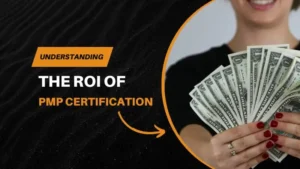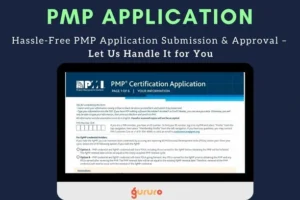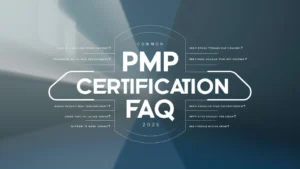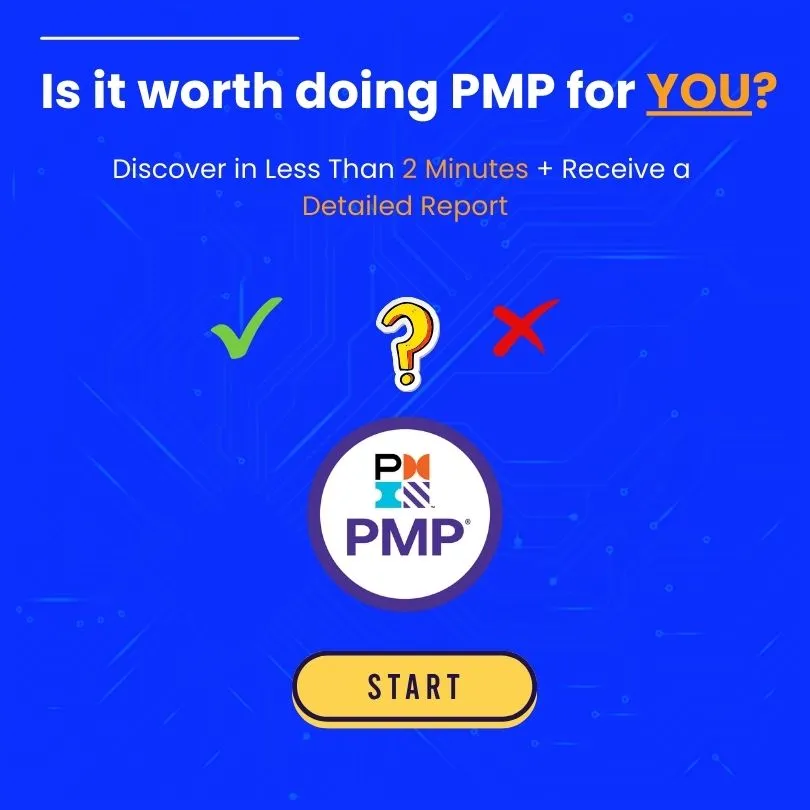When it comes to investing in one’s career, the decision should not be taken lightly. A common consideration for professionals in the project management realm is whether obtaining a Project Management Professional (PMP) certification is worth the effort. In this comprehensive blog “The Financial Rewards : Understanding The ROI Of PMP Certification“, we’ll break down the financial rewards and return on investment (ROI) of a PMP certification.
Direct Financial Rewards
- Salary Increment: Numerous studies and surveys suggest that PMP-certified professionals earn significantly more (often 20% or more) than their non-certified counterparts.
- Bonus & Incentives: Some organizations offer bonuses to employees who earn their PMP certifications because they add value to the business.
- Job Opportunities: Many high-paying job listings in project management now require or prefer PMP certification.
Indirect Financial Rewards
- Improved Job Security: With the PMP, you demonstrate a commitment to the profession, making you a valuable asset to the organization.
- Increased Client Trust: Clients often feel more secure knowing they’re dealing with a certified professional.
- Network Expansion: Being a PMP and a member of PMI offers networking opportunities, which can lead to lucrative job offers and partnerships.
Return on Investment (ROI)
To compute the ROI, consider the total costs involved and the increased earnings potential:
- PMP Exam Fee
- Study materials (books, courses)
- Membership fee (if you opt for PMI membership)
- Time spent in training and studying
Increased Earnings:
- Salary increment post-certification
- Additional opportunities for promotions or high-paying jobs
- Potential bonuses
ROI Calculation:
To calculate the ROI (Return on Investment) of obtaining a PMP certification, one must consider both the initial investment (costs) and the potential increased earnings (returns). Here’s a detailed ROI calculation using hypothetical numbers for clarity:
Investment (Costs):
- PMP Exam Fee: $555 (non-PMI members) / $405 (PMI members)
- Study Materials: Approximately $300 (this includes books, online resources, practice exams, etc.)
- Training Course: Approx. $1,000 (PMP exam prep courses can vary widely in cost based on the provider and location)
PMI Membership Fee (optional but gives a discount on the exam fee): $139
Total Investment = $555 (or $405) + $300 + $1,000 + $139 = $1,994 (or $1,844 for PMI members)
Increased Earnings (Returns):
For this example, let’s assume a PMP-certified individual receives a 20% salary increase after certification:
- Pre-PMP Annual Salary: $60,000
- Post-PMP Annual Salary (with a 20% increase): $72,000
- Annual Increase: $72,000 – $60,000 = $12,000
For simplicity, we’ll calculate the ROI based on the first year’s increased earnings, though one could argue that the certification provides value for many years, making the ROI even more favourable over the long term.
ROI Calculation:ROI=(NetProfit/CostofInvestment)x100
Where:
- Net Profit = Increased earnings – Total investment
- Cost of Investment = Total Investment
- Plugging in the values: ROI = ($12,000 – $1,994) / $1,994 x 100% ROI = $10,006 / $1,994 x 100% ”’=501.8ROI=501.8
- Understanding The ROI Of PMP Certification: ROI = ($12,000 – $1,844) / $1,844 x 100% ROI = $10,156 / $1,844 x 100% ”’=550.6ROI=550.6
So, based on the first year’s salary increase alone, the ROI of getting PMP certification is substantial, ranging from 501.8% to 550.6% in our example. Over multiple years, as the PMP credential continues to add value to the individual’s career without any additional cost (excluding the cost of earning PDUs for recertification), the ROI becomes even more significant.
Other Non-Financial Rewards
- Enhanced Skill Set: You acquire a standardized set of project management skills.
- Global Recognition: The PMP is recognized worldwide, making you a part of a global community.
- Personal Achievement: The rigorous PMP exam and preparation are challenging. Passing it is a significant accomplishment.
Considerations & Potential Drawbacks
- Time and Effort: Preparing for the exam can be time-consuming.
- Recertification Requirements: PMPs must earn Professional Development Units (PDUs) to maintain their certification.
- Initial Costs: Exam and preparation costs can be a barrier for some.
Conclusion : Understanding The ROI Of PMP Certification
For many professionals, the financial and non-financial rewards of PMP certification far outweigh the initial investment. The enhanced earning potential, combined with increased marketability and job security, makes PMP a worthy investment for those serious about their careers in project management.
If you’re considering the PMP certification, weigh the immediate costs against the long-term gains. With dedication, preparation, and strategic planning, the PMP can provide an impressive ROI in both tangible and intangible ways.















